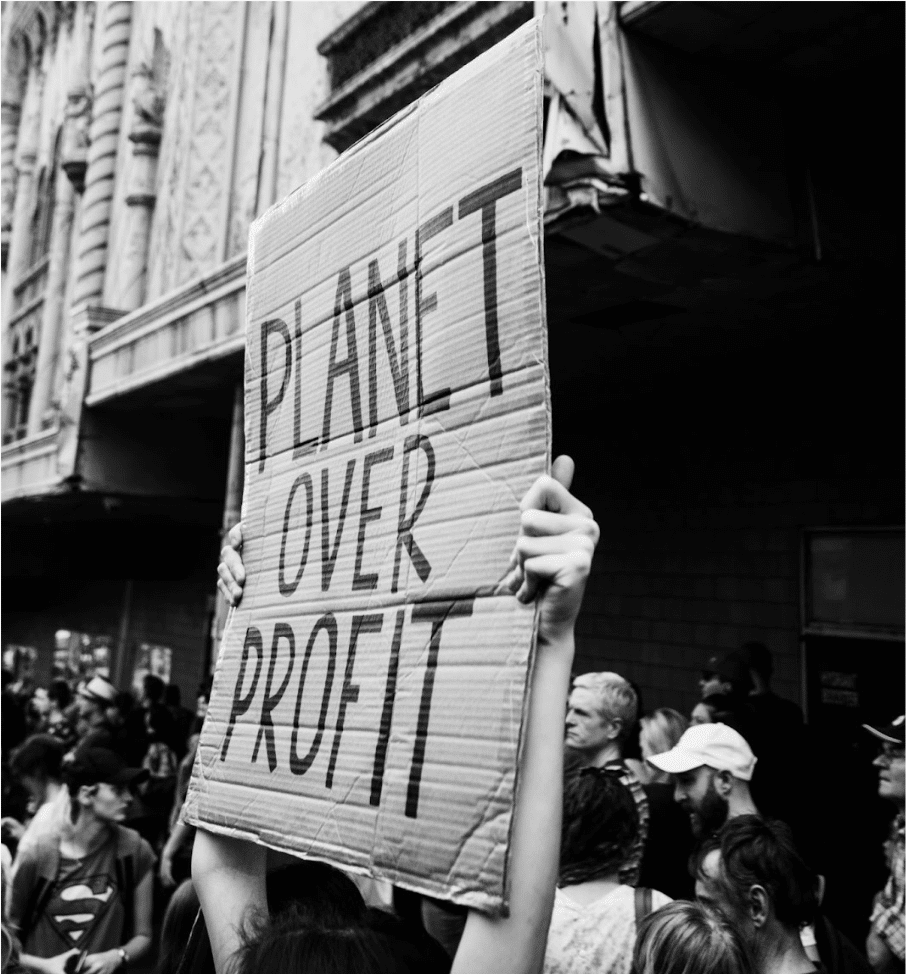Photo: Jay Wennington via Unsplash
In several countries where FMS operates, the excesses of climate change and pollution by multinational companies are becoming visible - with major consequences for populations. They experience the direct consequences of environmental pollution, such as poor air quality, cleared forests, and water scarcity. This has triggered various forms of protest - often met with fierce repression by authorities. In the Netherlands, green and social-democratic forces are joining forces in the upcoming Lower House elections. But internationally too, the fight against environmental pollution and climate change is social in nature - and cooperation is important. The excesses of capitalism and the free-market economy are causing far-reaching consequences for resilient communities worldwide. These injustices strike at the heart of international solidarity and justice, and also undermine democratisation processes.
The excesses of climate change in Iraq
The effects of climate change are seen by many as a future risk to our grandchildren. This does not apply to those who already face the agonising effects of climate change on a daily basis and have almost no choice but to protest for basic services such as clean drinking water.
This is how Iraq's climate warms two to seven times as fast up as the global average, making local communities extremely vulnerable to water scarcity and rising temperatures. In the city of Basra, water pollution created a cholera epidemic and hundreds of people were hospitalised every day. Ironically, Basra is the centre of one of the world's largest ports from where oil is exported. While the profits of oil companies and governments shoot into billions from oil exports, the population hardly sees any of this. The scorching heat in this region is partly due to the speed at which fossil fuels are extracted and consumed in countries like Iraq.
Consequently, from 2018, several grassroots protests surfaced in southern Iraq. The lack of the most basic amenities was no longer accepted. The Iraqi authorities responded through internet shutdowns, arbitrary arrests, and excessive force involving at least 31 deaths. In February 2023 reported Human Rights Watch that environmental activists in Iraq continue to be threatened, harassed and arbitrarily detained by government officials and armed groups. Besides belonging to a hugely vulnerable group, these Iraqis are also oppressed by their government. It is therefore of great importance to stand in solidarity with activists who are fighting daily for better livelihoods while the climate around them will continue to heat up in the coming years.
An uneven playing field
Elsewhere in the world, local communities suffer greatly from environmental degradation as a result of the actions of large, often Western, corporations. These groups often have little or no power vis-à-vis multinationals, which often bear little legal responsibility and often even avoid taxation through constructions in countries such as the Netherlands. This has serious consequences for citizens who are treated unfairly.
For example, this month in Turkey an end to the two-year campaign to save the Akbelen forest, which is being cut down by energy giant YK Energy. Turkish security forces violently attacked local residents, who had clung to trees, with tear gas and water cannons, and arrested some of them.
This problem is equally visible in Tunisia, where activists recently appealed against the long prison sentences imposed on them. These activists demonstrated against a huge rubbish dump that, under the influence of giant corporations, for residents of the town of Aguereb caused serious health problems.
Large-scale protests took place against lithium mining carried out there by Anglo-Australian company Rio Tinto, whose activities caused widespread pollution of the nearby area. Clashes with local police also took place here.
In Azerbaijan it was also recently hit, after police responded disproportionately to residents of Soyudlu village who were demonstrating against the pollution of their habitat by a British gold mining company. They are experiencing serious health problems such as lung damage, toxic drinking water, and the inability to leave their homes.
But we also see problems in the Netherlands when the excesses of capitalism lead to large-scale environmental pollution. Tata Steel's IJmuiden plant is in a densely populated area, where residents suffer increased risk of lung cancer and brain damage as a result. Tata Steel has yet to deliver on all its promises to curb pollution.
Democratisation requires justice
On these issues, green and social politics come together. Where communities affected by climate change and environmental pollution are treated unfairly, and an uneven playing field is created between corporations and governments on the one hand, and local communities on the other, this is a breeding ground for distrust in democratic institutions. Democracy cannot develop in a society where citizens cannot hold governments and companies to account when their livelihoods are threatened by large-scale environmental pollution.Solidarity with activists and climate justice for communities are therefore crucial prerequisites for democratisation. Those who want to fight in solidarity for international democratisation must therefore also fight for climate justice.
Climate justice requires countering the excesses of capitalism and resource exploitation. The concept of climate justice recognises how the burden of climate change is unfairly distributed: vulnerable groups, who have a relatively low share in climate change, often experience far more negative impacts of climate change than those who are responsible for it. This disparity is often accompanied by economic inequality at both national and international levels. Mass extraction of resources by humans is thus inherently linked to social justice, or rather the lack thereof.
Countering the excesses of capitalism therefore requires social democratic politics, where companies are taxed fairly for the profits they make. When no limits are placed on economic growth, vulnerable groups suffer: not only through economic inequality, but also through environmental pollution. Companies should pay a fair price for their production through taxes.
Protecting climate and environmental activists who work every day for a better future requires green politics: politicians who stand up for them and expose wrongdoing. We should support them. Residents deserve a say in their own environment and support in guarding it. There is therefore no place in this for arbitrary police violence and arresting activists. Indeed, security forces should not be protectors of big polluters, but should be dedicated to the collective good. This calls for both socially and climate-conscious politics.




